Putting your computer to sleep is an important way of maintaining your security, conserving power, and resuming work with little delay. However, some users experience a black screen after sleep on Windows 11. This means that even when they wake the device from sleep, it remains on a black screen, and no work can be done.
You may experience this problem for many reasons, from graphics driver issues to fast startup and configurations. We have the best solutions in this detailed guide if you run into the problem.
Prerequisite: Boot Into Safe Mode
Since the computer is not waking up from sleep, you may force a shutdown and boot into Safe Mode before applying any of the fixes in this guide. Safe Mode allows your computer to come on with only minimal programs and services, helping it remain stable while you troubleshoot. Once you boot in Safe Mode, you may proceed to the solutions.
Also, remember you may take easy steps to exit Safe mode on Windows 11.
1. Uninstall Problematic Applications
Conflicting programs are one reason you may experience a Windows 11 black screen after sleep. Some programs may interact with the system’s sleep mode function. Also, they may consume so many resources when waking the computer from sleep, making the transition impossible.
Additionally, the program may have background processes that interfere with sleep. Once in Safe Mode, you may uninstall this program.
2. Turn Off the App Readiness Service
On Windows 11, the app readiness service is used to prepare apps when you log in or are newly added. However, it may cause conflicts in sleep mode that result in a black screen when you wake a Windows 11 device from sleep. You may disable it using the steps below.
1. Type Windows + R to open Run, then type services.msc and hit Enter.
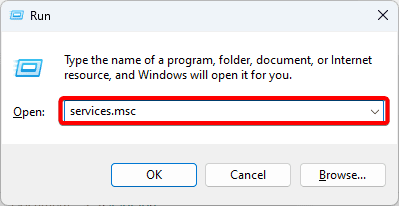
2. Locate App Readiness, double-click it, set Startup type to Disabled, then click Apply and OK.
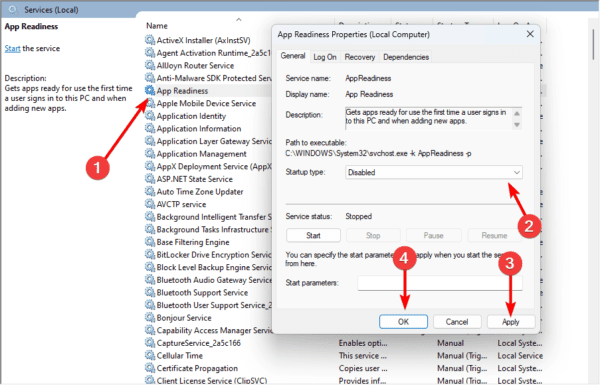
3. Disable Fast Startup and Hibernation
For Fast Startup to make your computer start faster, it may prevent the system from completely going to sleep, triggering the black screen when you wake the computer from sleep or hibernation. An easy workaround is disabling Fast Startup and Hibernation.
1. Press Windows + R to open the Run dialog, then type control and hit Enter.
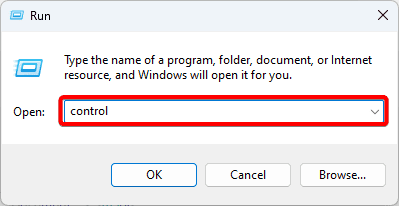
2. Click Hardware and Sound.
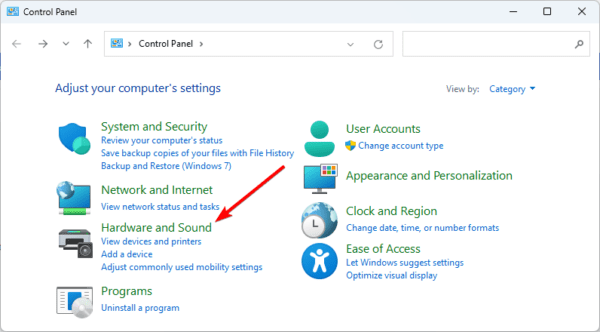
3. In the Power Options section, click on ‘Choose what the power buttons do’.
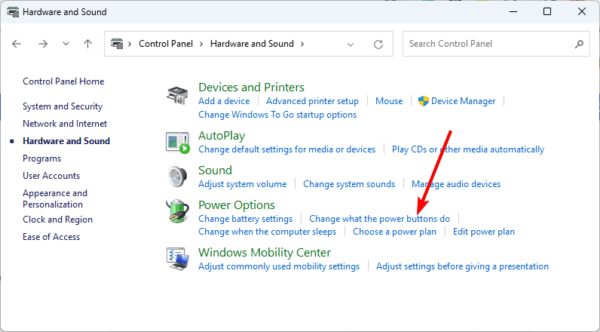
4. Click ‘Change settings that are currently unavailable’.
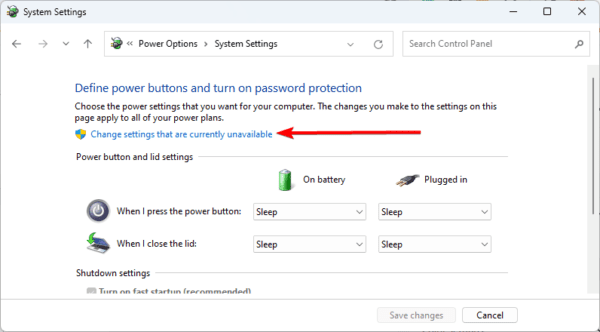
5. Untick the ‘Turn on fast startup’ and Hibernate.
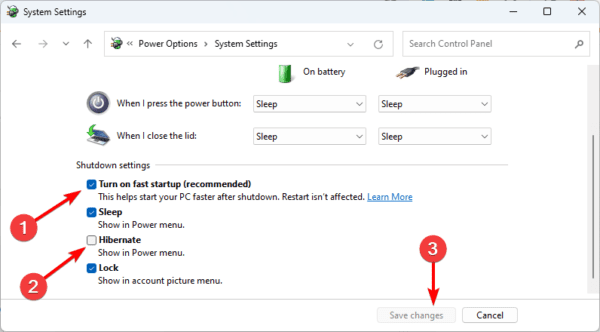
4. Reinstall the Graphics Driver
Graphic cards process and output data to a display device like a computer monitor. You may have problems restarting the display after sleep when it is corrupted or outdated. You should reinstall it using reliable driver updaters, or from the Device Manager as shown below.
1. Right-click on the Start menu and select Device Manager.
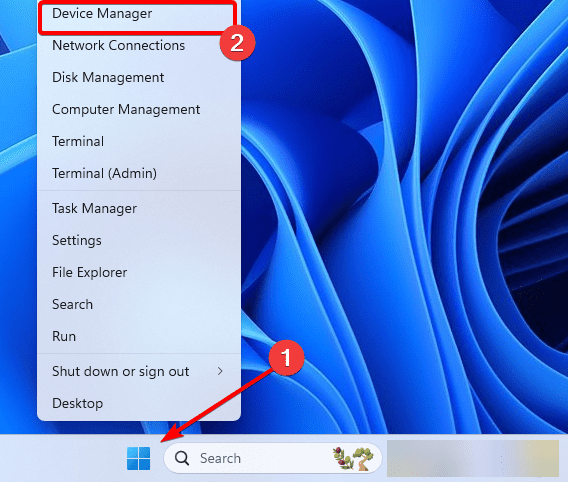
2. Expand the Display adapters category, right-click on your driver, and click on Uninstall device.
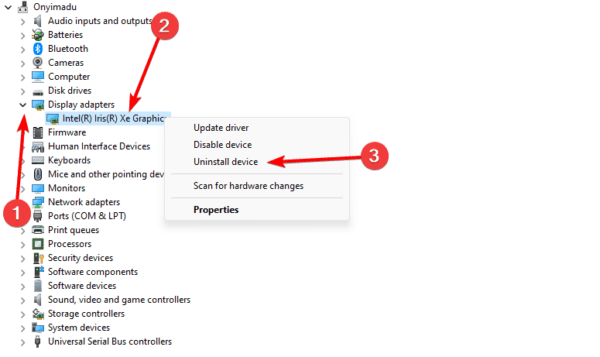
3. Confirm your choice.
4. Restart the computer and relaunch the Device Manager.
5. Click the Scan for hardware changes option, and a new driver should be installed.

5. Turn Off Sleep Mode
Turning off sleep mode will be an easy fix if you get a black screen when you wake a Windows 11 device from sleep. This solution helps you avoid the problem completely.
1. Press Windows + I to open the Settings app.
2. On the left pane, click System, then on the right, click Power & Battery.
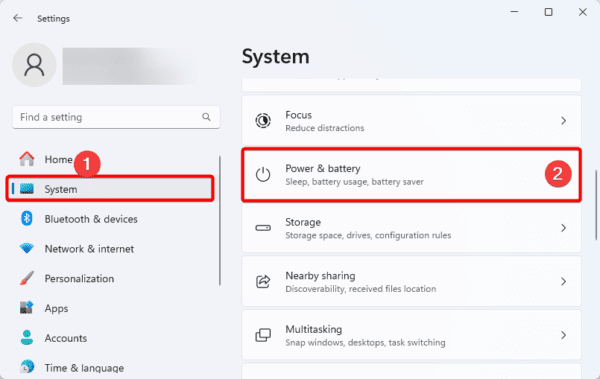
3. Under Screen and sleep, set the respective durations to Never.
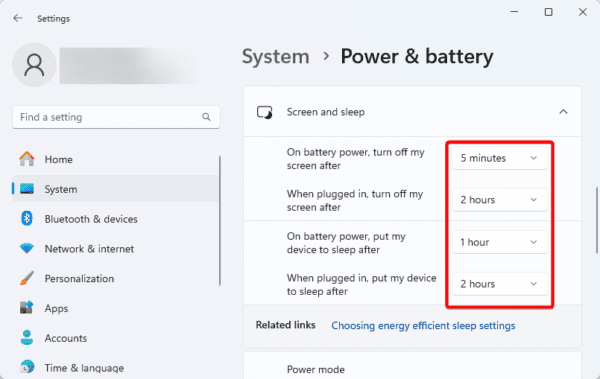
6. Run the System Restore Utility
The System Restore utility is a built-in tool from Microsoft that allows your computer to revert to a previous point. This is an effective solution because you may return to a point before the black screen error started. However, you must note that some applications may be uninstalled during the process.
1. Press Windows + R to open the Run dialog, type rstrui, and hit Enter.
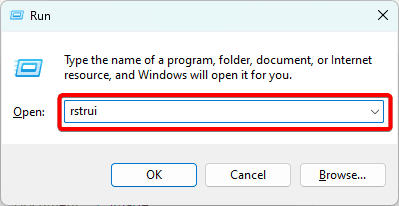
2. Click the next button.
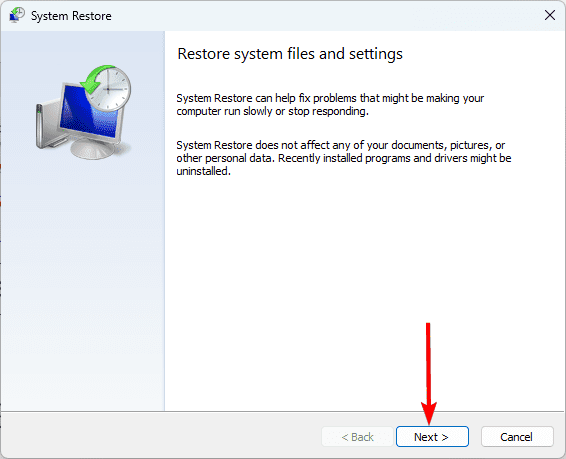
3. Click a restore point from the list and click the Next button.

4. Click the Finish button.
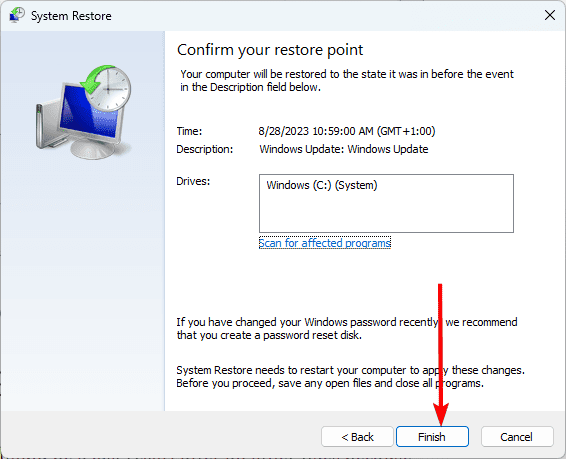
7. Update the System BIOS
When you update your system’s BIOS, it resolves compatibility issues between the Windows installation media and the hardware on your computer, and this may be needed to resolve underlying issues that cause a black screen when you wake a Windows 11 device from sleep.
1. Type HP on the Start menu and select HP PC Hardware Diagnostics Windows.
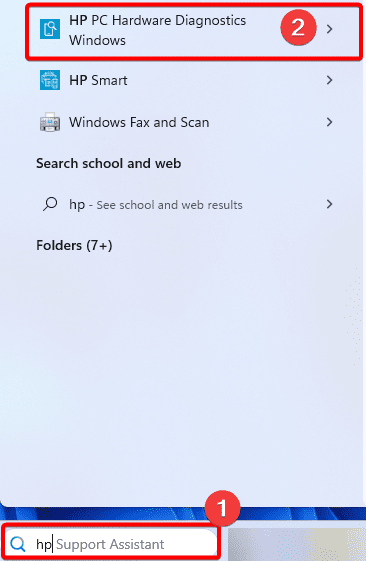
Step 2: Under the BIOS-System Firmware section, click Check for BIOS updates.
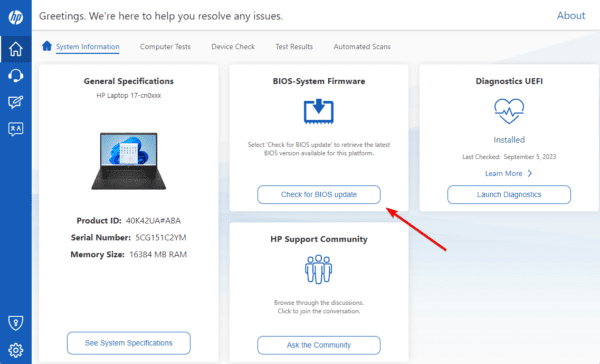
Step 3: Click Agree.
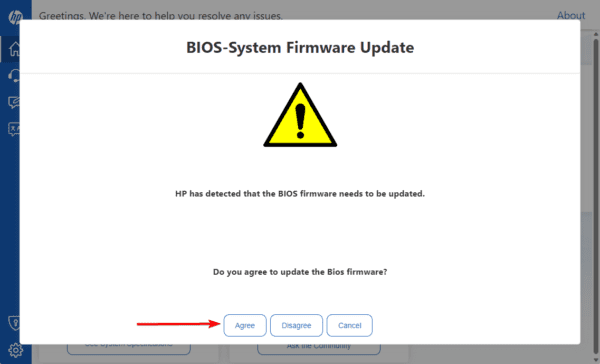
FAQ
1. What is causing the black screen issue after waking up my Windows 11 device from sleep?
Numerous factors, such as conflicts with installed apps, problems with the App Readiness service, issues with Fast Startup and Hibernation settings, issues with graphics drivers, or damaged display drivers, might cause the black screen issue.
2. Why is booting into Safe Mode recommended before applying the fixes?
By starting your computer in Safe Mode, you can be confident that it begins with the fewest apps and services possible, giving you a stable environment for troubleshooting. When your computer isn’t waking up from sleep, this is crucial.
Getting Past Windows 11 Black Screen After Sleep
That is all we will share in this guide. With any of the solutions, you should have resolved Windows 11 black screen after sleep. You should feel free to try any of the solutions that feel most applicable.
